Hip-hop artist Negash Ali has lived a life that is almost destined to be made into a movie. Being forced to leave her home due to the conflict between her home country of Eritrea and Ethiopia, Ali’s mother fled to give her budding family a better place to go. The first five years of life alone of Ali featured him residing in various refugee camps around Europe. In 1995, the hope of a life where worry was diminished when the family was granted asylum.
As for his aspirations to be a musician, Ali has always known this would be his life’s mission. He was part of the Danish group Majors when was sixteen; the group saw the success that included performances in Kemp & Splash Festivals, which is considered to be two of the most prominent hip-hop festivals. Ali’s previous efforts also have allowed him to win over critics and fans all around the world.
After taking an extended break, Ali has now returned with his album The Ascension. Ali looks at his latest as a testament towards accepting himself, with all the flaws and imperfections included. Also with the release of The Ascension, it’s a culmination of sorts; has been working with several various artists have influenced his overall vision. Sonically, the tracks are alluring and enticing to the ears with Ali’s openness as an artist.
We caught up with Ali to learn about his backstory, his career in music, and more.
You were born in a refugee camp that your mother fled from Eritrea. What stories did your mother tell you about the conflict in the country?
She told me the actual conflict came out the British giving Eritrea to Ethiopia, after the Italians, whom we were colonized by, lost in WW2. Since that conflict started way back in the 60s, my mother’s been on the run since she was born basically.
What was that feeling like when you and your family was granted asylum in Scandinavia in 1995?
Contrary to the desperate surroundings in those centers and camps, I don’t carry too many negative memories. I’ve been told stories of people losing their minds in there, but my mother kept us sheltered from that. After we got our asylum Is when I recall my real childhood starting honestly.
What was the moment that inspired you to be a musician?
I must have been 10-11 hearing the Blackstar album and Immortal Technique’s Vol 1 and 2. Those records showed how me powerful music can be in re-defining the listeners perspective of self and surroundings. Those records made me feel like changing the world and introduced me to all sorts of literature as well.
What did your family think when you started exploring your intrigue of music?
My mom signed my 1st management deal when I was 13 lol. They are all amazing and supportive. I think they’d rather see me with a lifestyle that’s more chill tbh, but they also know me and know that’s not gonna happen anytime soon, haha.
At the age of sixteen, you joined the group Majors. Touring around Europe, what did you learn about being on the road at such a young age?
I’ve always felt more at home on stage than anywhere, cliché as it may be. The road is FUN man. It was lonely and overwhelming at 1st, but I transitioned in to really enjoying it. You can’t beat rocking on a stage in front of 20K plus people going ape, that’s the nexus of life right there.
You have now settled in New York. What we’re expecting to witness when you came to America for the first time?
You know, there’s not a lot of black people in Denmark, and black culture is next to nonexistent, so I found my male role models in US rappers. I was very excited coming here and immediately fell in love with N.Y. The city just matches my energy. I love L.A. 2, but in N.Y. culture just smacks you right in the face when you walk out your door, which fits me perfect for the time being.
You have worked alongside artists such as Chris Brown, Young Chop, Jadakiss & Bob Sinclar. When you collaborate with someone, what is it that you are looking to accomplish artistically?
The perspective of who I am and who that other artist is has to meet at an interesting intersection. Which usually just comes from kicking it and having some convo. Good songs in my humble opinion are nothing but funny, quirky, cool, enlightening observations. And it gets really fun when the other artist is open to geeking out and spending time identifying each other’s skills, and just putting the time in to make it EXCITING.
You spent some time putting together the new album. What made you take as much time as it has for the record to be finished?
I started The Ascension fall 2015. All in all, there were 40 records on the drawing board. I was wearing a lot of hats – Producing, recording and mixing in the early stages. All this while having just moved from London back to Denmark and getting ready for the big move to N.Y.
Secondly, there was sometimes I just needed to live some life to tie the loose ends on the stories of the album.
Another thing is the ambitions of this one were/are enormous!! I NEED for this album to be my magnum opus. I need for it to sum up all the experimental projects I’ve put out in the past and creatively just merge into a new sound and energy. That’s the ambition, and undertakings of that kind take time.
When writing, how much of yourself do you incorporate into the songs?
On this album all of it. It’s very much about me and my “quarter-life crisis.” By that meaning accepting my past, present, and future. I was dealing with a lot of that at that time, which I know many in my generation do. Feelings of maybe not being as far in your career as you imagined, or learning how to accept the dynamics of who you are, shedding your skin, not compromising to conformity and expectations from the outside world. That self-acceptance process to me was very real.
With the new album, what ideas and thoughts did you want to incorporate into the tracks?
I was trying to communicate from a fearless standpoint. On previous albums, there have been times, where I was asking myself “do u really want to share that?” “Are u really comfortable putting that out there, knowing the internet don’t forget?”. This time around, I ignored those voices, accepting that an album is a snapshot.
You pieced The Ascension In L.A., New York, London, and Denmark over the course of the past year. What did each landmark represent in terms of influence?
Europe is just more electronic, EDM and Pop sounding then America in my experience. Even though I gravitate to US hip-hop, I was born and raised there. I hope when you play the whole album, that eclectic input is represented in the output.
What’s next regarding what you want to accomplish? I read that collaborating with Kayne West is on your radar.
That’s one of the GOATS. I obviously wanna expand my presence here in the US, where I plan on staying. I have a different background and perspective, personally and sonically, so I’m sticking to my guns and bringing something different, exciting, and just a little brainy to the table.
As your music life continues to bloom, do you ever allow yourself to think about how you reached this moment? Especially after those tough days going from refugee camp to refugee camp?
There are certain moments where I remember that little boy sitting in his room in Aarhus, which is a cute but very small city FYI, devoting himself to rapping 3 hours a day and setting goals on going to the US to become a legit rapper. I’d like to cherish those moments when they come more, as they give me something to be grateful for and makes you remember whats important.
In terms of how I busted my ass for it through and through and have done it without management etc. Where I’m coming from, nobody has really done what I’m trying to achieve, and I’m willing to get it or die trying. I know this is my purpose.
Negash Ali’s The Ascension is out now.
Facebook | Instagram


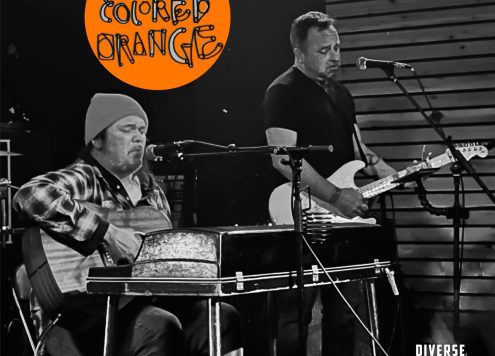
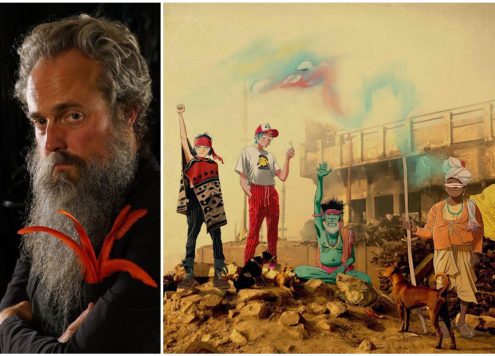
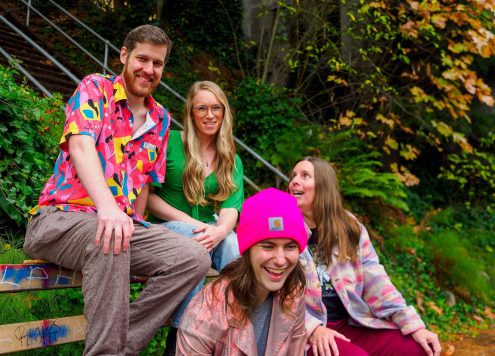
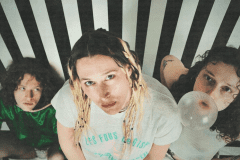
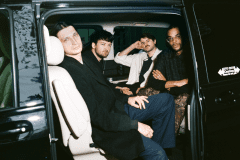
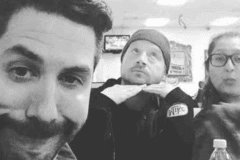
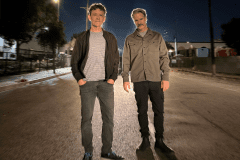

Social Media